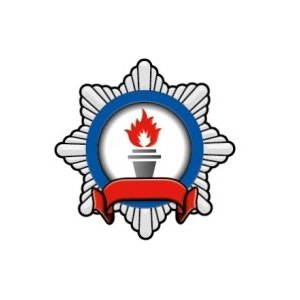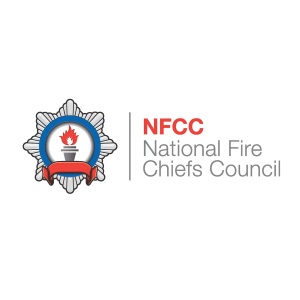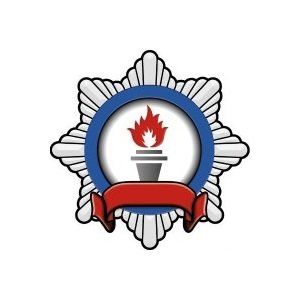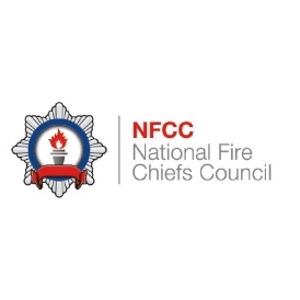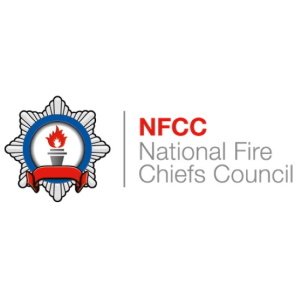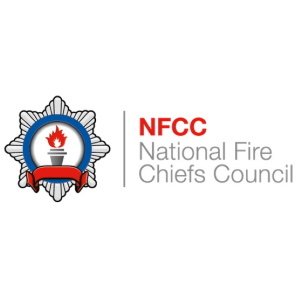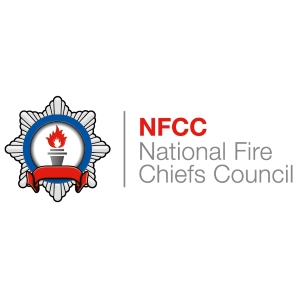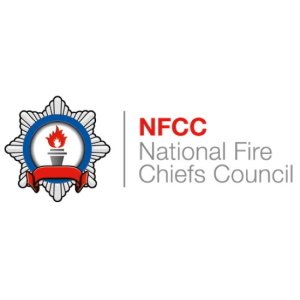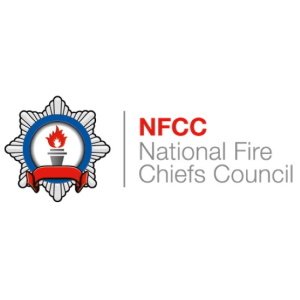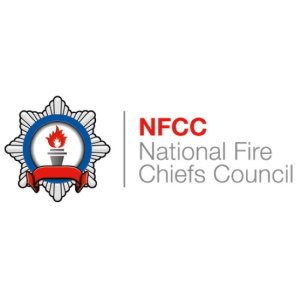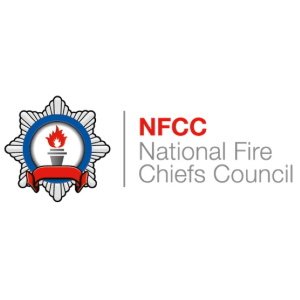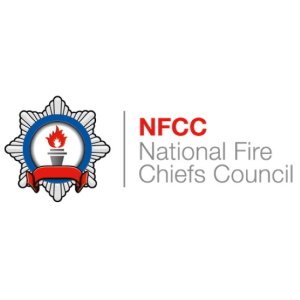NFCC - Experts & Thought Leaders
Latest National Fire Chiefs Council (NFCC) news & announcements
Dräger, an international pioneer in medical and safety technology, has renewed its sponsorship of the National Breathing Apparatus Challenge (NBAC), as part of its commitment to supporting the firefighting community and promoting industry best practices. In its 16th year, The Challenge sees teams of five firefighters from across the UK competing where success depends on the expert use of breathing apparatus to manage an incident and the deployment of intelligent strategies such as tactical ventilation. Four areas of competition The competition, judged by over 30 highly experienced national assessors, is split into four areas designed to cover the full spectrum of how breathing apparatus is used across all firefighting roles: command and control; breathing apparatus procedures; fire ground procedures; and entry control. The event is held at the Fire Service College each year using three of their carbonaceous training venues where challenges replicate a wide range of real-life fire incident scenarios, including domestic, high-rise, and industrial. The competition takes place over a weekend and concludes with a Silver Service awards dinner. keeping entry costs low Dräger’s sponsorship helps to cover the costs of venue hire, accommodation, materials, and the awards dinner Dräger’s sponsorship helps to cover the costs of venue hire, accommodation, materials, and the awards dinner, so as to keep competition entry costs as low as possible. Mark Andrews from NBAC says there has been an increased need for realistic training over recent years, “We now have fewer fire emergency callouts, which is undoubtedly a success story for the industry. But it means realistic training is more important than ever to ensure fire crews can respond quickly, dynamically, and instinctively when emergencies happen.” realistic training in breathing apparatus “The national challenge provides an excellent opportunity to provide firefighters with realistic training in breathing apparatus use to further that goal, while also being an event to bring the industry together and celebrate achievements. We are thrilled Dräger continues to sponsor such an important event,” said Mark. Liz Millward, Marketing Manager for Emergency and Rescue Services, Dräger, says the NBAC demonstrates what physically demanding and complex roles our firefighters undertake, “The competition takes a firefighter from site investigation, entry control board use, and communication through to quickly and efficiently accessing water supply and unloading ladders and PPE equipment." respiratory protection "It showcases how breathing apparatus is not just used to provide respiratory protection to wearers but also to inform strategies, monitor firefighters’ health, and connect the whole team,” she says. “We have been a sponsor from the start of NBAC and are delighted to continue our sponsorship in support of the firefighting community.” The 2024 NBAC event took place on October 12th.
The Chair of the National Fire Chiefs Council (NFCC), Mark Hardingham, will be standing down in March 2025 when his four-year term of office comes to an end. NFCC recently held an election for a new Chair, with all serving UK Chief Fire Officers and those who had served as a Chief Fire Officer within the last two years eligible to stand. NFCC individual members Three very capable candidates put themselves forward, with the voting taking place across all NFCC individual members during September. The outcome of the election was confirmed by the NFCC Board of Trustees at their meeting on Friday 4 October. They can now confirm that Phil Garrigan, the current Chief Fire Officer of Merseyside Fire and Rescue Service, received the most votes. He will take over from Mark Hardingham in April 2025.
Over 50 countries came together for the first-ever World Fire Congress in Washington DC last week. Hosted by the United States (US), the Congress (7th–8th May, 2024) was aimed at increasing international collaboration on the growing challenges faced by fire and rescue services across the globe. The two-day event also saw nations signing the World Fire Congress Charter, indicating their continued commitment to work together to tackle pressing fire-related issues. At the close of the event, the US handed over the reins to the United Kingdom, with NFCC taking responsibility for organizing the next World Fire Congress in 2026. Representatives and fire professionals Day 1 saw delegates discussing structural fires - with a particular focus on tall buildings Government representatives and fire professionals from 54 countries – including UK delegates, Mark Hardingham (Chair, NFCC), Sarah Gawley (Director of Fire and Major Events, Home Office), and Roger Thomas (Chief Fire Officer, Mid and West Wales Fire and Rescue Service) - attended the Congress, which focused on four key themes. Day 1 saw delegates discussing structural fires - with a particular focus on tall buildings - and the impacts of climate change, including wildfires and flooding. On day 2, the focus shifted to emerging energy technologies and, in particular, the risk posed by lithium-ion batteries and battery energy storage systems; followed by a session aimed at addressing firefighter health and wellbeing. Global footprint of work With most countries in attendance signing the World Fire Congress Charter, it was also agreed that the US would host online communities of practice for each of the four themes. This will see representatives meet each month to establish a global footprint of work, share experiences and learning, and connect research, training and development. It is expected that the Congress will rotate around different continents, with the UK hosting in 2026, followed by the United Arab Emirates in 2028. Impacts of adverse weather NFCC Chair, Mark Hardingham, said: "It was a huge honor to be in Washington to co-chair this historic event, which is the first of its kind. I want to express my gratitude to our US hosts for their hospitality and for putting on such a fantastic Congress." He adds, "The Congress stood as an important reminder that the UK FRS is not alone in the challenges it faces, whether that be fires in tall buildings or dealing with the worst impacts of adverse weather. I firmly believe that there’s a huge amount to be gained by sharing ideas and expertise with global partners and working collaboratively to find the necessary solutions."
Insights & Opinions from thought leaders at NFCC
During the Grenfell Tower fire incident in 2017, ineffective fire doors allowed smoke and toxic gases to spread through the building more quickly than should have been possible. Sir Martin Moore-Bick made this finding in the conclusion to Phase 1 of the Grenfell Tower Inquiry. It serves to highlight the importance that fire doors play in protecting life and property. Grenfell Inquiry findings The Grenfell Inquiry findings have impacted subsequent United Kingdom government guidance and proposed legislation. For example, the Ministry of Housing, Communities and Local Government (MHCLG) insists that non-fire resisting doors should be replaced immediately with door sets that are third party certified as providing at least 30 minutes of fire resistance. The BWF works to increase ‘mass market’ awareness of the vital role that fire doors play in protecting life and property The British Woodworking Federation (BWF) works to increase ‘mass market’ awareness of the vital role that fire doors play in protecting life and property. The BWF sponsored Fire Door Safety Week (21-27 Sept. 2020) in partnership with the UK Home Office’s National Fire Safety Campaign, the National Fire Chiefs Council and London Fire Brigade. The observance is the brainchild of the British Woodworking Federation, supported by the BWF Fire Door Alliance. Importance of fire doors in protecting life and property While there are multiple types of fire doors available, certified timber fire doors were subjected to government fire tests in 2019 and were shown effective at meeting and exceeding the minimum burn time requirement of 30 minutes. Factors to ensure a fire door performs as intended include product manufacture, quality, installation and maintenance. Correctly specifying, maintaining and managing a fire door can mean the difference between life and death for building occupants in an emergency. Appointing ‘Responsible Person’ to inspect fire doors Everyone plays a role to ensure a fire door performs as intended, from the manufacturer to a building’s users. Building owners should appoint a ‘Responsible Person’ to check the performance of fire doors. Propping open a fire door keeps it from performing as intended in the event of a fire. Fire doors and other passive fire protection industries have common interests with other fire-related organizations. More education can help the whole building industry and every property owner to understand the importance of fire doors. Regular inspection of fire doors Owners should carry out checks at three-month intervals to ensure all fire doors are fitted with effective self-closing devices Sir Martin Moore-Bick also recommended that those who have responsibility for entrance doors to individual flats in high-rise building should be required by law to ensure such doors comply with current standards. Owners and managers of any residential building that contains separate dwellings should carry out an urgent inspection of all fire doors to ensure they comply with applicable standards. Owners and managers should also be required to carry out checks at three-month intervals to ensure all fire doors are fitted with effective self-closing devices that are in working order. Raising standard of fire doors via Third party certification Third party certification is the best way to raise the standard of fire doors and fire door sets across the board to ensure all fire doors in any building type meet safety standards. Also, inspections should be carried out by trained and registered professionals who identify any faults and highlight where doors do not meet standards. Doors in high-traffic areas should be checked more frequently as they are more susceptible to damage.
The fire industry has made it absolutely clear, led by authorized bodies including the BAFE Fire Safety Register, that the current pandemic does not remove the need to comply with any fire safety requirements under the Building Regulations. As we now look beyond the lockdown period, John Allam, Operations Director at Amthal Fire and Security reviews the raft of new proposals demonstrating the Government and industry’s commitment to compliant fire safety and new immediate demands placed on responsible persons. Multi-Occupancy residential buildings Whilst the second phase of the Grenfell Tower Inquiry has been put on hold until July at the earliest over coronavirus restrictions, the government has continued its quest to effect change and bring the Fire Safety Bill and Building Safety Bill into legislation. While the Building Safety Bill will ‘place new and enhanced regulatory regimes for building safety and construction products’, both bills aim to strengthen the ‘whole regulatory system’ for both building and fire safety. The Fire Safety Bill will apply to England and Wales, to amend the Fire Safety Order 2005 and seeks to clarify responsibility for reducing fire risk in multi-occupancy residential buildings. The details of the Fire Safety Bill, which has now had its second reading in the House of Commons, includes recommendations of regular inspections of lifts and sprinkler systems for buildings over 11m tall. Quarterly fire door inspections Building owners will now face ‘enforcement action’ from emergency services if they do not manage fire risk Significantly, it also introduces compulsory quarterly fire door inspections, which is a hugely significant development in its own right, to influence an industry where this is no specific legislation that requires fire doors to be checked. The Fire Safety Bill intends to ensure evacuation plans are reviewed, regularly updated and communicated to residents in a ‘form that they can be reasonably be expected to understand.’ And it highlights the importance of individual flat entrance doors, where the external walls of the building have unsafe cladding, comply with current standards. This will play a key part in increasing residents’ fire safety, whereby building owners will now face ‘enforcement action’ from emergency services if they do not manage fire risk in a building’s structure. Improving the fire safety of buildings In addition, the government is consulting with the National Fire Chiefs Council to begin testing evacuation alert systems for high-rise blocks of flats, which could support fire and rescue services’ operational response by alerting residents if they need to escape. The National Fire Chiefs Council to begin testing evacuation alert systems for high-rise blocks of flats The new program will be governed by a Building Safety Regulator (BSR) that will initially be led by Dame Judith Hackitt during the set up phase, who will be tasked with improving the fire safety of buildings. Launched by The RT Hon Robert Jenrick MP Secretary Of State for Housing, Communities and Local Government, he cited the new program as taking, “Ambitious steps to further reform the building safety system with the biggest changes in a generation to ensure residents are safe in their homes.” He added: “This new regime will put residents’ safety at its heart, and follows the announcement of the unprecedented £1 billion fund for removing unsafe cladding from high-rise buildings in the budget.” Major regulatory decisions The BSR will be responsible for all major regulatory decisions made at key points during design, construction, occupation and refurbishment of buildings. And such decisions and obligations must be upheld and maintained throughout a development’s life. The new safety case regime will apply not only to new buildings, but also to buildings that are already in use" In Dame Judith’s own words: “When introduced by the new regulator, the new safety case regime will apply not only to new buildings, but also to buildings that are already in use and occupied. If those buildings were built to poor standards in the past, it will not be the case that you can simply say ‘well it complied with building regulations at the time’. The test will be different. The test will be ‘is this building safe to be occupied?’ and, if not, what are you going to do to improve it?’ … People will be asked to think about what they can do, what is reasonable and what is practicable to do in order to improve the safety of a given building.” Regulating the fire safety industry Both Hackitt and the Government want the BSR to be set up in shadow form before the Building Safety Bill becomes law. The plan is to put the bill before Parliament by the autumn, despite the challenges thrown by the Pandemic. The new legislation proposed by Government will undoubtedly ensure that buildings and those that live and work in them are maintained to be fire safe. In the words of BAFE CEO Stephen Adams: “The time is right to help better regulate the fire safety industry to change end user behavior and create a UK that's safer from the devastating effects of fire.” As BAFE further attests, as lockdown measures begin to be lifted, there will be a need for the competent maintenance of fire safety systems/provisions and fire risk assessment work. Fire doors and risk assessments Amthal is working closely with building owners and managers across the UK to deliver the benefits of safer environment This means for those who own or manage residential buildings, will soon be ‘held into account’ if they do not ensure fire safety in their buildings, and the requirements will impact further on costs and resource allocation, for investigating buildings and ensuring compliance. There is a definite sense to be proactive in acceptance of the new impending legislation. But the concern cited amongst building owners is the industry’s ability to undertake the volume of assessments required, given the lack of current lack of specific legislation on specific elements such as fire doors and risk assessments, together with the steep expectations for fire strategy and evacuation plans. Amthal is working closely with building owners and managers across the UK to deliver the benefits of safer environment within a holistic fire safety approach. Working in partnership, means taking the time to understand the implications of the Government’s Fire Safety Bill, alongside the implications of the Building Safety Bill and BSR program. This way, we can ensure responsible persons confidently achieve all operational requirements for the ultimate benefit of residents’ peace of mind.
The New Future For Fire Agencies
DownloadThe Eight Key Trends in Fire Detection in 2023
DownloadA Digital Platform to Improve Fire Safety Compliance and Inspections
DownloadOvercoming the Challenges of Fire Safety in the Paper Industry
DownloadCarbon Monoxide: Creeping Killer Caught In The Act
Download